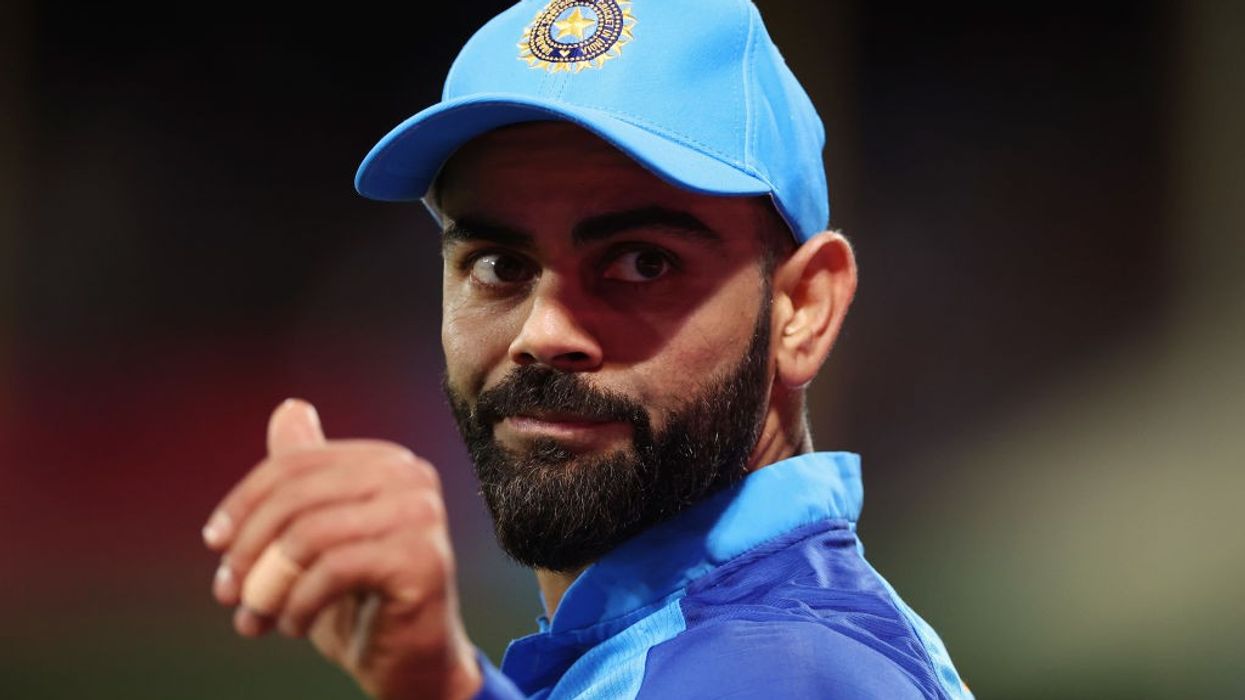Crown Perth has issued a statement of apology after Indian batting star Virat Kohli expressed disappointment for a breach of privacy in his hotel room on Monday, October 31.
“The safety and privacy of our guests is our number one priority, and we are incredibly disappointed this incident has occurred. We unreservedly apologise to the guest involved and will continue to take the necessary steps to ensure this remains an isolated incident," Crown said in a statement.
“We have zero tolerance for this behaviour, and it falls well below the standards we set for our team members and contractors.
“Crown has taken immediate steps to rectify the issue. The individuals involved have been stood down and removed from the Crown account, and the original video was swiftly removed from the social media platform," it added.
“Crown is conducting an investigation with the third-party contractor and will take any further steps necessary to ensure an incident of this nature does not happen again.
“We are also co-operating with the Indian Cricket team and the International Cricket Council to convey our apologies and will continue to work with them as we progress the investigation," the statement added.
Earlier, Virat took to Instagram and revealed that his privacy was invaded at a hotel room in Perth, where the T20 World Cup is going on. The cricketer shared the viral video and said he was disappointed by the "fanaticism and absolute invasion of privacy."
The video shows someone taking a tour of Virat's hotel room in the absence of the cricketer.
Describing the incident as an "absolute disgrace", Anushka took to Instagram Story and wrote, "Have experienced a few incidents where some fans have shown no compassion or grace in the past but this really is the worst thing. An absolute disgrace and violation of a human being and anyone who sees this and thinks celebrity ho toh deal Karna padega (If you are a celebrity then you will have to deal with this) should know that you are also part of the problem."
"Exercising some self control helps everyone. Also, if this is happening in your bedroom then where is the line?" she concluded in her note.
An enraged Kohli literally requested all to respect privacy of others.
"I understand that fans get very happy and excited seeing their favourite players and get excited to meet them and I've always appreciated that. But this video here is appalling and it's made me feel very paranoid about my privacy. If I cannot have privacy in my own hotel room, then where can I really expect any personal space at all?? I'm NOT okay with this kind of fanaticism and absolute invasion of privacy. Please respect people's privacy and not treat them as a commodity for entertainment," he posted on Instagram.
Virat's invasion of privacy has left many outraged. Members of the film and sports industry too reacted to the incident.
"Horrible behaviour," actor Varun Dhawan commented.
"Absolutely unethical & uncool," actor Arjun Kapoor wrote.
Virat and Anushka have always been careful about maintaining their privacy.
in the past they have several times requested the media not to share photos featuring their daughter Vamika.
The two have never revealed Vamika's face in any of their pictures since her birth.
They had earlier issued an official statement revealing the reason for keeping Vamika away from the limelight, "We have decided as a couple to not expose our child to social media before she has an understanding of what social media is and can make her own choice."




